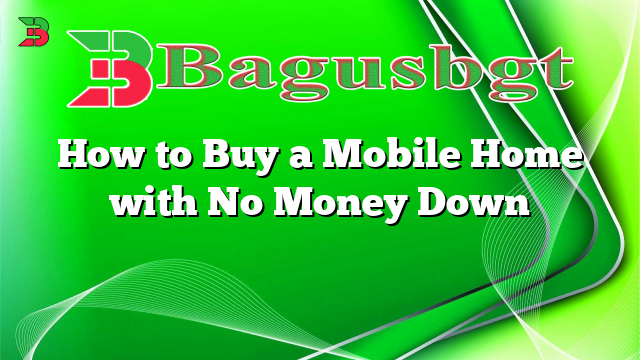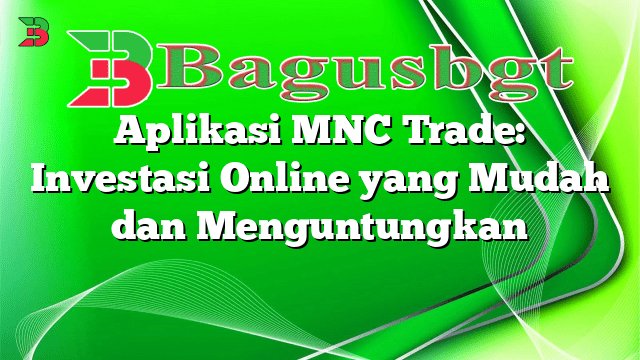Hello and welcome to our guide on how to buy a mobile home with no money down. In this article, we will provide you with a step-by-step process on how to achieve this goal. Buying a mobile home can be a great investment, and we are here to help you make it happen even if you don’t have any upfront cash.
1. Research Government Programs
One of the first things you should do when trying to buy a mobile home with no money down is to research government programs that assist with home purchases. These programs are specifically designed to help individuals and families who may not have enough money for a down payment. Some examples include the USDA Rural Development Loan and the VA Loan for veterans.
Advantages: Government programs can provide you with the opportunity to buy a mobile home with no money down, making homeownership more accessible.
Disadvantages: Eligibility requirements may vary, and there might be limitations on the location or type of mobile home you can purchase.
2. Explore Seller Financing Options
If you are unable to qualify for a government program, another option is to explore seller financing. This means that the seller acts as the lender and allows you to make monthly payments towards the purchase of the mobile home. In some cases, sellers may be willing to finance the entire purchase price, eliminating the need for a down payment.
Advantages: Seller financing can provide flexibility and potentially eliminate the need for a down payment.
Disadvantages: Not all sellers offer financing options, and the terms may not be as favorable as traditional loans.
3. Consider Rent-to-Own Agreements
Rent-to-own agreements can be a viable option for buying a mobile home with no money down. These agreements typically involve renting the mobile home for a certain period with the option to purchase it at the end of the lease term. A portion of the rent paid during the lease period may be credited towards the purchase price.
Advantages: Rent-to-own agreements allow you to build equity while living in the mobile home and can eliminate the need for a down payment.
Disadvantages: Not all sellers offer rent-to-own agreements, and the terms may vary.
4. Save for Closing Costs
While you may be able to buy a mobile home with no money down, it’s important to remember that there are still closing costs involved in the purchase. These costs can include appraisal fees, title insurance, and attorney fees. It’s essential to save for these expenses to ensure a smooth and successful home buying process.
Advantages: Saving for closing costs allows you to be financially prepared for the home buying process.
Disadvantages: Saving for closing costs may take time and require discipline.
5. Improve Your Credit Score
Having a good credit score can significantly improve your chances of buying a mobile home with no money down. Lenders often consider creditworthiness when evaluating loan applications. By improving your credit score, you can increase your eligibility for loans with favorable terms.
Advantages: A good credit score can help you secure better loan options and potentially eliminate the need for a down payment.
Disadvantages: Improving your credit score may take time and effort.
6. Negotiate with the Seller
When buying a mobile home with no money down, it’s crucial to negotiate with the seller. Try to find common ground and explore options that can benefit both parties. For example, you may negotiate a reduced purchase price in exchange for not requiring a down payment.
Advantages: Negotiating with the seller can result in a mutually beneficial agreement that eliminates the need for a down payment.
Disadvantages: Not all sellers may be open to negotiation, and the outcome may not always be favorable.
7. Seek Assistance from Nonprofit Organizations
Nonprofit organizations often provide assistance to individuals and families looking to buy a home with no money down. These organizations may offer grants, down payment assistance programs, or educational resources to help you achieve your homeownership goals.
Advantages: Nonprofit organizations can provide financial and educational support, making it easier to buy a mobile home with no money down.
Disadvantages: Eligibility requirements and availability of assistance may vary depending on the organization.
8. Explore Lease Purchase Options
Lease purchase options involve renting a mobile home with the intention of purchasing it at a later date. A portion of the monthly rent goes towards building equity, which can be applied towards the purchase price when the lease term ends.
Advantages: Lease purchase options allow you to live in the mobile home while saving for a down payment.
Disadvantages: Lease purchase options may come with strict terms and conditions, and you may risk losing the accumulated equity if you are unable to purchase the home.
9. Consult with a Real Estate Agent
A real estate agent who specializes in mobile homes can be a valuable resource when trying to buy a mobile home with no money down. They can guide you through the process, provide expert advice, and help you explore all available options.
Advantages: A real estate agent can provide valuable insights and assist you in finding the best options for buying a mobile home with no money down.
Disadvantages: Real estate agent fees may apply, and not all agents may have experience with mobile home transactions.
10. Alternative: Shared Equity Programs
If the options mentioned above are not feasible, you can consider shared equity programs. These programs involve partnering with an organization or individual who provides the down payment in exchange for a share of the equity in the mobile home. This allows you to buy a mobile home with no money down.
Advantages: Shared equity programs can provide a solution when traditional financing options are not available.
Disadvantages: Shared equity programs may involve sharing ownership and potential financial returns with another party.
| Question | Answer |
|---|---|
| 1. Can I buy a mobile home with no money down? | Yes, it is possible to buy a mobile home with no money down using various strategies such as government programs, seller financing, rent-to-own agreements, and more. |
| 2. Are there any downsides to buying a mobile home with no money down? | While buying a mobile home with no money down can be advantageous, it’s essential to consider potential downsides such as eligibility requirements, limited options, and the need to save for closing costs. |
| 3. How can I improve my credit score? | To improve your credit score, focus on paying bills on time, reducing debt, and maintaining a low credit utilization ratio. It may also be helpful to review your credit report for any errors and address them accordingly. |
| 4. What if I can’t find a seller willing to finance the mobile home? | If you are unable to find a seller who offers financing, consider exploring other options such as rent-to-own agreements, shared equity programs, or seeking assistance from nonprofit organizations. |
| 5. How long does it typically take to save for closing costs? | The time it takes to save for closing costs can vary depending on individual circumstances. It’s important to set a budget, save consistently, and prioritize saving for these expenses. |
Conclusion
Buying a mobile home with no money down is possible with the right strategies and resources. By researching government programs, exploring seller financing options, considering rent-to-own agreements, saving for closing costs, improving your credit score, negotiating with sellers, seeking assistance from nonprofit organizations, exploring lease purchase options, and consulting with real estate agents, you can increase your chances of achieving your goal. If traditional methods don’t work, shared equity programs offer an alternative solution. Remember to consider the advantages and disadvantages of each option and choose the one that best suits your needs and financial situation.
 Bagus Banget Collection of the latest information from various reliable sources
Bagus Banget Collection of the latest information from various reliable sources




